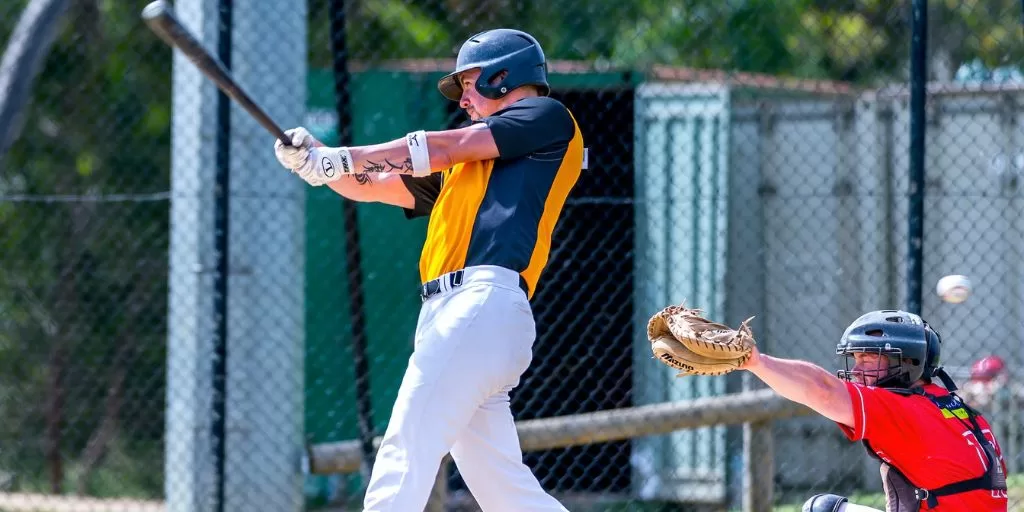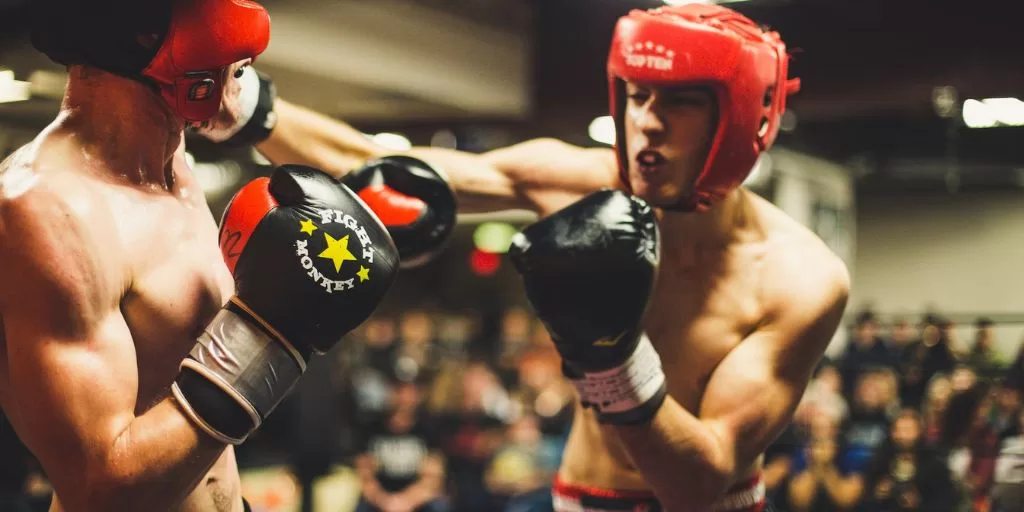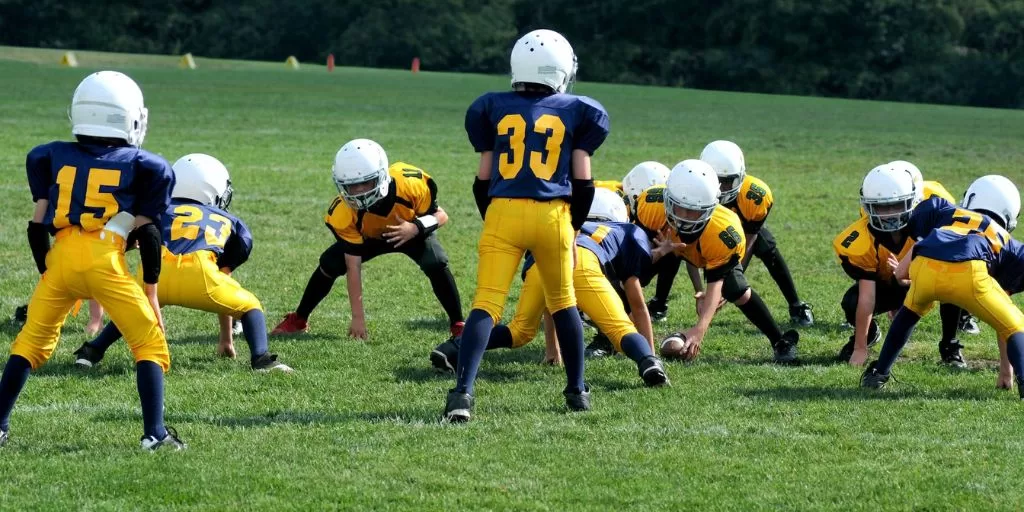Sports and athletics require physical strength, endurance, and skill. But, what many athletes don’t realize is that they also need mental toughness to reach peak performance levels. Mental toughness training teaches young athletes how to develop the psychological tools necessary for success on the playing field.
Recently I heard a story of a high school basketball team that was struggling in their games despite having talented players. After their coach implemented mental toughness exercises into their practice regimen, they saw an impressive turnaround; winning more than half of their remaining games! It just goes to show you: sometimes it’s not enough to be physically strong – you have to train your mind too.
Mental toughness training helps young athletes become more resilient when faced with adversity or failure. They learn how to manage stress, stay focused under pressure, remain composed during competition, and cultivate emotional control – all essential traits for becoming successful sportspeople. Today, we’ll discuss the importance of mental toughness training for young athletes and explore some techniques coaches can use to help them build these skills.
Table of Contents
- 1 Definition of Mental Toughness
- 2 Benefits of Mental Toughness Training for Young Athletes
- 3 Techniques to Improve Mental Toughness
- 4 The Role of Support Systems
- 5 Evaluating Stressors and Setbacks
- 6 Understanding Pressure and Expectations
- 7 Building Self-Confidence and Resilience
- 8 Creating a Positive Mindset
- 9 Practicing Focus and Concentration Exercises
- 10 Incorporating Effective Goal-Setting Strategies
- 11 Conclusion
Definition of Mental Toughness

Mental toughness is one of those concepts that everyone has heard, but not many can actually explain. So what exactly is mental toughness? It’s a term used to describe the ability to overcome adversity and perform under pressure, in any given situation.
Let me break it down for ya: Mental toughness is essentially the capacity to remain focused on a goal or task despite the obstacles you may face along the way. The concept of mental toughness appears throughout almost every field – from sports, music, and business, to name a few. For young athletes in particular, this trait can be extremely beneficial when striving for success.
Nowadays, there are plenty of resources out there for developing mental toughness; from guided meditation programs to online video courses and even physical training sessions. No matter which route you take – they all have their advantages and disadvantages – with enough dedication and discipline you’ll learn how to stay cool under fire and keep your head while pushing through challenging circumstances.
In short, if you want to become an elite athlete then mastering mental toughness should be high up on your list of priorities – as without it you won’t reach peak performance levels no matter how hard you train physically!
Benefits of Mental Toughness Training for Young Athletes
Mental toughness training is becoming increasingly popular among young athletes, and for good reason. Developing mental strength has a wide range of benefits that can help propel any athlete to higher levels of performance. Here are some of the most important benefits that young athletes should consider when deciding whether or not to invest in mental toughness training:
First off, increased resilience is one of the most undeniable advantages of undergoing mental strength training as a young athlete. Building up your psychological fortitude will enable you to tackle difficult situations with greater ease, while also increasing tension tolerance during intense competition. Mental toughness exercises teach you how to stay composed under pressure and remain focused on success – no matter what obstacles may be thrown at you.
Another great outcome from mental toughness practice is improved communication skills; knowing how to properly articulate yourself when put on the spot or having an issue arise can go a long way toward helping you succeed both on and off the field. Having strong verbal abilities helps build relationships with coaches, teammates, competitors, and others in sports-related scenarios – giving you an edge over those who lack this type of know-how.
Finally, mastering mental strength gives you a better understanding of self-motivation which is essential for athletic excellence. With proper motivation techniques, comes discipline, determination, and dedication – all qualities necessary for achieving peak performance in any given sport activity! When combined with physical conditioning drills and technical skill development practices, these traits become even more powerful tools that no aspiring athlete should overlook!
Techniques to Improve Mental Toughness

Mental toughness is a quality that all athletes should strive to cultivate – and there are several techniques that can be used to develop it. While physical training helps build the body, mental conditioning helps strengthen the mind. Here are some of the most effective ways to improve your mental strength:
First off, visualization is an incredibly powerful tool for developing mental toughness. Visualizing success before you even step onto the field can do wonders for building confidence and improving performance when game time rolls around. By picturing yourself in peak form throughout every aspect of your sport, you’ll be able to better handle any setbacks or challenging moments that may arise during the competition.
Another important technique for strengthening mental toughness involves positive self-talk. Talking positively to oneself has been proven to boost moods and increase motivation levels – both of which are key components of becoming mentally tough. Additionally, regularly practicing affirmations and focusing on goals rather than mistakes can help maintain high standards even in difficult situations!
The next way to sharpen up your mental strength is by learning how to manage emotions effectively; this skill will keep anxiety at bay while also allowing you to remain calm under pressure. Finally, setting realistic expectations and striving for incremental improvement each day can go a long way toward cultivating mental resilience over time – so don’t be afraid to set small but achievable goals if necessary!
Developing these skills takes practice and dedication; however, doing so will not only give you an edge over other competitors but also allow you to become more confident in both sports and life overall!
The Role of Support Systems
Now that we’ve discussed some of the best techniques for building mental toughness, it’s time to talk about the role of support systems. Every athlete needs a solid foundation built from family, friends, and coaches in order to reach their full potential – and these people can play an invaluable part in helping you become mentally tough. Here are four reasons why support systems are essential for young athletes:
- They provide guidance – A supportive team around you will help guide your development as an athlete by offering advice or tips on how to improve both physically and mentally. Having access to this type of knowledge is crucial when attempting to cultivate mental strength!
- They offer encouragement – It’s hard enough pushing yourself without somebody else giving you positive reinforcement along the way; having someone who believes in you and encourages you during difficult times can make all the difference. Your support system should be there to cheer you on no matter what happens!
- They act as accountability partners – Supportive teammates won’t just give praise but also hold you accountable for any mistakes made or goals not achieved. This helps create a culture of high standards which ultimately leads to greater success down the line.
- They provide comfort – When things don’t go according to plan, your support system should be there with open arms providing reassurance during trying times. Knowing somebody has got your back makes overcoming obstacles far easier than going at it alone!
All in all, having strong relationships with other people involved in sport plays a significant role in developing mental toughness among young athletes. Without them, achieving peak performance would be much more difficult – if not impossible – so never underestimate their importance when striving toward greatness!
Evaluating Stressors and Setbacks
No matter how mentally tough you are, there will always be times when things don’t go according to plan – and it’s during these moments that having a support system can make all the difference. It’s important for young athletes to recognize their stressors and setbacks in order to properly evaluate them and develop strategies for overcoming them. Here’s what you need to know about evaluating stressors and setbacks:
First off, it’s essential to identify your sources of stress or failure so that you can better understand why they happened in the first place; this allows you to form an action plan with realistic steps on how to prevent similar issues from occurring again. For example, if you find yourself making mistakes due to a lack of focus before games, then consider implementing some pre-game rituals like visualizing success or doing breathing exercises.
Second, try not to dwell too much on past failures; instead, look at each experience as an opportunity for growth by reflecting on what went wrong and taking away lessons learned while also celebrating successes no matter how small they may seem. A great way to do this is by writing down three things that went well after every practice session or game which helps keep morale high despite any bumps along the road.
Thirdly, use positive self-talk whenever possible because negative thoughts only amplify anxiety levels and decrease performance potential; so remember that even though obstacles may arise – nothing is ever impossible! Keep telling yourself “I can do this” until eventually, you start believing it.
Finally, don’t forget the importance of rest; recovery should never be overlooked as fatigue hinders both physical and mental abilities – plus downtime gives us the valuable time needed for reflection and personal growth. Developing a healthy balance between training hard and resting often is key to long-term success!
Understanding Pressure and Expectations
Pressure and expectations can often be daunting for young athletes, but with the right mental toughness training they can learn to manage them more effectively. So let’s dive into what it takes to understand pressure and expectations in order to better prepare yourself for success!
First off, know that pressure is normal; no matter how mentally tough you are there will always be moments of fear or doubt when facing a challenge – so don’t beat yourself up over feeling anxious before big games or competitions. Instead, use this energy as fuel to get your head in the game and trust that you have the skills needed to succeed.
Second, evaluate your goals realistically; while aiming high is important – setting unrealistic expectations may lead to disappointment down the road. It’s key for young athletes to set achievable short-term targets which provide motivation toward long-term objectives, allowing progress steps along the way. This type of incremental success helps build confidence and reinforces a growth mindset even when faced with setbacks.
Thirdly, focus on controllable elements like effort and attitude rather than results; remind yourself that we all make mistakes from time to time but if you put in 100% then anything can happen! Also, remember that success isn’t just about wins or losses but also includes improving self-awareness and mastering new skill sets – so enjoy the process by celebrating small victories along the way.
Finally, find ways to reduce stress levels outside of sports such as taking regular breaks from screens or scheduling daily meditation sessions; these activities not only help clear your mind but also give much-needed rest for both body and soul. Developing healthy habits away from the competition will ensure peak performance come game day!
Building Self-Confidence and Resilience

Let’s face it – we all have moments of self-doubt, but with the right mental toughness training and resiliency building you can learn to recognize those negative thoughts and take control of your own destiny. It’s time to unlock the power within and become an unbreakable force!
First off, focus on building self-confidence through positive affirmations and visualization; this will help strengthen your belief in yourself and give you more confidence during tough times. Visualizing success helps create a roadmap toward success while also providing motivation when faced with adversity – so tap into that inner champion whenever needed.
Second, practice resilience by learning how to reframe failures into teachable lessons; instead of beating yourself up over mistakes view them as opportunities for growth. This kind of “growth mindset” allows athletes to stay focused on the process rather than obsessing over outcomes; remember that setbacks are part of any journey and should be embraced not feared!
Thirdly, develop mental strength by exercising mental fortitude during pressure situations like big games or competitions; remind yourself that no matter what happens you won’t let external expectations define who you are as a person. Practice taking one breath at a time to reduce stress levels before competition – even if it means counting backward from 10 or repeating some calming mantras!
Finally, cultivate mental resilience by focusing on controllable elements such as effort and attitude; trust in your abilities knowing that anything is possible when giving 100%. Embrace failure knowing that they are part of life’s greatest teachers if used correctly – because those moments shape us into stronger people both mentally and physically!
Creating a Positive Mindset
When it comes to creating a positive mindset, athletes have the power to control their own thoughts and attitudes. It’s all about understanding that you are in charge of your own destiny and using this knowledge to create an unshakeable mentality. Here’s how:
First off, start by changing negative thought patterns into empowering ones; replace “I can’t do this!” with “I CAN do this!” This simple adjustment will help boost confidence during times when self-doubt is creeping in – don’t be afraid to talk yourself up every now and then!
Second, practice gratitude for what you have achieved thus far; recognize small successes rather than focusing on missed opportunities or past mistakes. Acknowledging blessings helps promote contentment because successful athletes know there is always more work to be done instead of dwelling on what could have been done better.
Thirdly, establish healthy habits like eating well and getting enough rest; these little things add up quickly over time and can greatly improve overall performance. Eating properly fuels the body while sleep recharges the mind – both essential components for success as any athlete knows!
Last but not least, trust in yourself; having faith in your abilities goes a long way toward developing the right mental attitude for peak performance. Believe that only YOU can determine where you want to take your skill set – no one else has control over that except for you!
Practicing Focus and Concentration Exercises
Alright, so now that we’ve established the importance of a positive mindset and how to cultivate it, let’s get into some practical ways to hone your mental focus and concentration. We all know that mastering these skills is essential for any athlete looking to reach their full potential – so invest in yourself by practicing these exercises!
First off, try meditating regularly; this simple practice can help you stay calm and focused during high-pressure situations or when dealing with stress. All you need to do is find a comfortable place where you won’t be disturbed and then take slow deep breaths while focusing on one thing at a time.
Second, introduce routines into your daily life; having consistent habits like waking up around the same time every day helps create a structure that can lead to improved focus overall. This also applies to eating breakfast each morning before training – stick with what works best for you!
Thirdly, challenge yourself mentally by playing games like chess or Sudoku; these activities require patience and problem-solving abilities which are invaluable skills as an athlete. And finally (but certainly not least), make sure that you’re giving 110% effort every day during practice or competition – this will not only sharpen your focus but also build discipline over time.
So there ya have it: four key steps toward improving mental focus and concentration through regular practice! Stay patient, commit to learning something new every day, and reap the rewards of becoming an elite competitor.
Incorporating Effective Goal-Setting Strategies
We all know that setting effective goals is essential for success. So let’s take a look at how to incorporate goal-setting strategies into your mental toughness training as an athlete.
First off, get specific when it comes to your goals; the more detailed and clear you can be with what you want, the better your chance of achieving it! Ask yourself questions like “what do I hope to accomplish?” and “how will this benefit me in my life/career?” – This helps provide context and direction so that you have something concrete to work toward.
Second, set realistic deadlines; if you set unrealistic expectations or don’t give yourself enough time to complete tasks, then frustration could easily overtake motivation. Make sure that the timelines are attainable but also challenge yourself by pushing these boundaries slightly – this will help build confidence over time.
Thirdly, break down large goals into smaller chunks; sometimes big projects can seem overwhelming or daunting, but breaking them into bite-size pieces makes them much easier to manage. You can even start by writing out a timeline of progress markers along the way – this allows for accountability as well as tangible results from following through on commitments.
And finally, create systems for tracking progress; having metrics in place such as daily checklists or short weekly reports keeps us accountable and motivated regardless of where we stand in terms of our overall goal. Once again – make sure that these benchmarks are achievable yet still challenging enough!
So there ya have it: four fundamental steps toward incorporating effective goal-setting strategies into your mental toughness training routine as an athlete looking to reach their full potential. Investing in yourself today pays dividends tomorrow – stay focused and keep growing!
Conclusion

Mental toughness training for young athletes is an important practice that can help them develop the skills, confidence, and resilience they need to succeed in their sport. It’s not just about pushing yourself physically, but also mentally through challenging times. By teaching them techniques such as evaluating stressors, setting goals, creating a positive mindset, and focusing on concentration exercises, we are helping our youth become more resilient and successful athletes.
However, it takes more than just learning these strategies – it takes consistent implementation of them throughout their careers. That’s where support systems come into play. Parents, coaches, teammates, and peers must all be aware of the importance of mental toughness and be willing to assist with its development in order to ensure success both on and off the field. I believe that if we give our kids the tools they need to stay mentally tough when the going gets tough – whether during competition or everyday life – then we will have helped create strong leaders who will make a lasting impact on society.
So let’s challenge ourselves to encourage mental toughness in our youths by providing them with knowledge-based training coupled with loving guidance from those around them. Together we can build confident champions who understand how to handle adversity while maintaining focus and poise!




